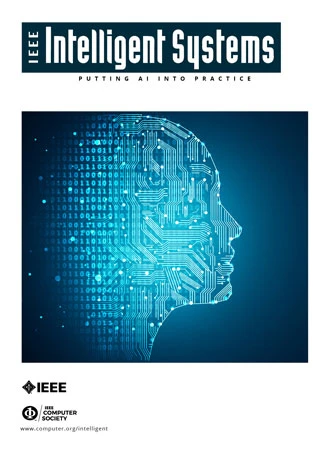Smart Decentralized Autonomous Organizations and Operations for Smart Societies: Human–Autonomous Organizations for Industry 5.0 and Society 5.0
IF 6.1
3区 计算机科学
Q1 COMPUTER SCIENCE, ARTIFICIAL INTELLIGENCE
引用次数: 0
Abstract
This article explores the concept of human–autonomous organizations (HAOs) based on decentralized autonomous organizations (DAOs) and operations as well as human, artificial, natural, and organizational intelligence and their roles in shaping smart societies in the context of Industry 5.0 and Society 5.0. It discusses the potential of AI-generated content and prompt engineering in specific goal-guided manufacture and governance. Additionally, the article introduces the concept of the HAO as a framework for integrating human intelligence to achieve fair, transparent, and accountable decision making within DAOs. The proposed HAO reduces the risk of instability and unreliability in “human-in-the-loop” copilot systems and human–machine hybrid systems, leading to more reliable, secure, and flexible systems. It provides insights into the future management of smart societies and the symbiotic relationship between human ingenuity and the suite of emerging new AI technologies.智能社会的智能分散自治组织与运作:工业 5.0 和社会 5.0 的人类自主组织
本文探讨了基于分散式自治组织(DAOs)和运营以及人类、人工、自然和组织智能的人类自治组织(HAOs)的概念,以及它们在工业 5.0 和社会 5.0 背景下塑造智能社会中的作用。文章讨论了人工智能生成的内容和提示工程在特定目标引导的制造和治理中的潜力。此外,文章还介绍了 HAO 的概念,将其作为整合人类智能的框架,以实现 DAO 内部公平、透明和负责任的决策。所提出的 HAO 降低了 "人在回路中 "副驾驶系统和人机混合系统的不稳定和不可靠风险,使系统更加可靠、安全和灵活。它为未来智能社会的管理以及人类智慧与一整套新兴人工智能技术之间的共生关系提供了真知灼见。
本文章由计算机程序翻译,如有差异,请以英文原文为准。
求助全文
约1分钟内获得全文
求助全文
来源期刊

IEEE Intelligent Systems
工程技术-工程:电子与电气
CiteScore
13.80
自引率
3.10%
发文量
122
审稿时长
1 months
期刊介绍:
IEEE Intelligent Systems serves users, managers, developers, researchers, and purchasers who are interested in intelligent systems and artificial intelligence, with particular emphasis on applications. Typically they are degreed professionals, with backgrounds in engineering, hard science, or business. The publication emphasizes current practice and experience, together with promising new ideas that are likely to be used in the near future. Sample topic areas for feature articles include knowledge-based systems, intelligent software agents, natural-language processing, technologies for knowledge management, machine learning, data mining, adaptive and intelligent robotics, knowledge-intensive processing on the Web, and social issues relevant to intelligent systems. Also encouraged are application features, covering practice at one or more companies or laboratories; full-length product stories (which require refereeing by at least three reviewers); tutorials; surveys; and case studies. Often issues are theme-based and collect articles around a contemporary topic under the auspices of a Guest Editor working with the EIC.
 求助内容:
求助内容: 应助结果提醒方式:
应助结果提醒方式:


